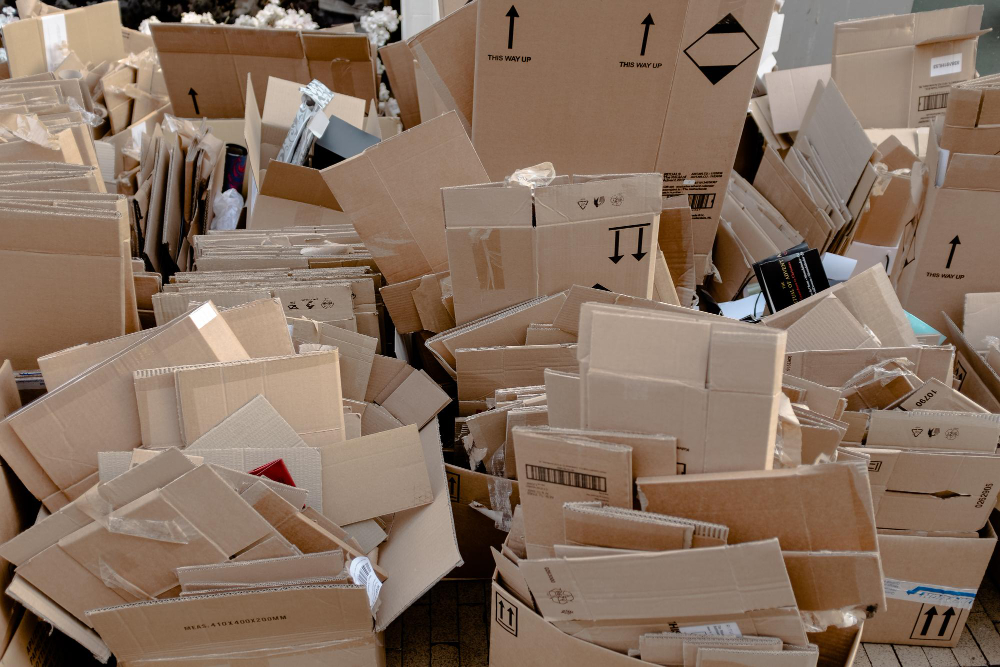
In today’s environmentally conscious world, businesses are increasingly recognizing the importance of adopting sustainable practices. One such practice is implementing a zero-waste strategy. This comprehensive approach aims to minimize waste generation and maximize recycling efforts. For businesses in New Jersey, focusing on cardboard recycling is an effective step toward achieving zero waste. This guide will walk you through the key steps to implement a zero-waste strategy in your facility, with a particular emphasis on cardboard recycling in New Jersey.
Zero-waste strategies significantly reduce the amount of waste that ends up in landfills, thus decreasing greenhouse gas emissions and mitigating climate change. By recycling materials like cardboard, businesses can conserve valuable resources and minimize their ecological footprint.
Implementing a zero-waste strategy can also result in considerable cost savings. By reducing waste disposal costs and potentially earning revenue from recycled materials, businesses can improve their bottom line while contributing to environmental sustainability.
Consumers are increasingly concerned about the environmental practices of the companies they support. By adopting a zero-waste strategy, businesses can enhance their brand reputation and attract environmentally conscious customers.
The first step in any zero-waste strategy is to conduct a thorough waste audit. This involves analyzing your facility’s waste streams to identify the types and quantities of waste generated.
Focus on identifying opportunities for waste reduction and recycling. For businesses in New Jersey, a common waste stream is cardboard, which can be easily recycled.
Set clear, measurable goals for your zero-waste strategy. These goals should include specific targets for reducing waste and increasing recycling rates.
Establish a realistic timeline for achieving these goals. This will help keep your efforts on track and ensure continuous progress.
Engage key stakeholders, including employees, management, and suppliers, in your zero-waste initiative. Form a green team to champion the cause and drive the implementation of your strategy.
Provide training and education to all employees to ensure they understand the importance of zero waste and how they can contribute to the initiative.
Cardboard is one of the most recyclable materials and is commonly found in business waste streams. Recycling cardboard can significantly reduce your facility’s waste output.
For businesses in New Jersey, partnering with a reputable recycling company like All County Recycling can streamline the process. They offer free consultations to help businesses set up efficient cardboard recycling programs.
Adopt the principles of reduce, reuse, and recycle. Encourage employees to minimize waste generation, reuse materials whenever possible, and recycle what cannot be reused.
Consider using sustainable packaging materials and practices to further reduce waste. Opt for recyclable or compostable packaging options.
Regularly monitor and measure the progress of your zero-waste strategy. Use metrics such as waste diversion rates and recycling volumes to gauge your success.
Continuously seek ways to improve your waste management practices. Stay updated on the latest developments in recycling technologies and sustainable practices.
All County Recycling is a leading recycling company in New Jersey with extensive experience in helping businesses implement effective cardboard recycling programs. They offer tailored solutions to meet the specific needs of your facility.
Contact All County Recycling today for a free consultation. Their experts will assess your facility’s waste management practices and provide recommendations for optimizing your cardboard recycling efforts.
All County Recycling offers a range of services, including collection, processing, and marketing of recyclable materials. Their team is dedicated to helping businesses achieve their zero-waste goals.
Implementing a zero-waste strategy is a powerful way for businesses to reduce their environmental impact, save money, and enhance their brand reputation. By focusing on key areas such as cardboard recycling and engaging stakeholders in the process, businesses can make significant strides toward sustainability. For businesses in New Jersey, partnering with All County Recycling can simplify the process and ensure successful implementation of cardboard recycling programs.
Ready to take the first step toward a zero-waste future? Contact All County Recycling today for a free consultation and start your journey toward sustainability.
Contact All County Recycling today for a free consultation and start your zero-waste journey. Let's make New Jersey a greener place, one cardboard box at a time.